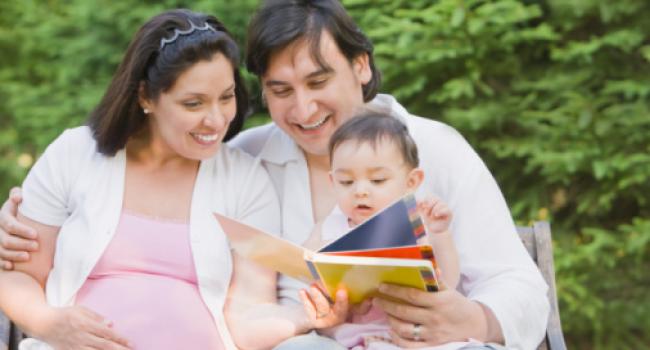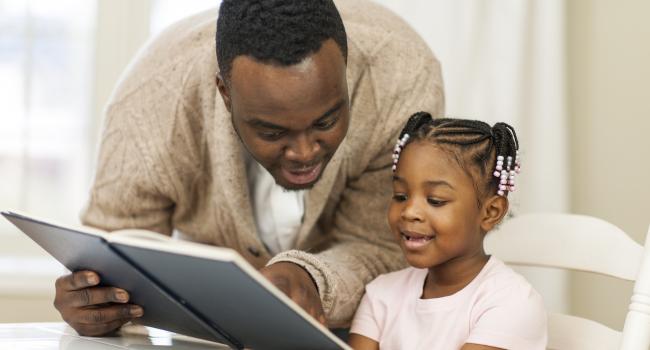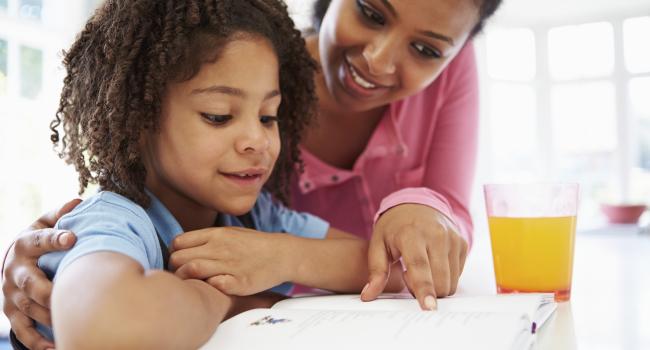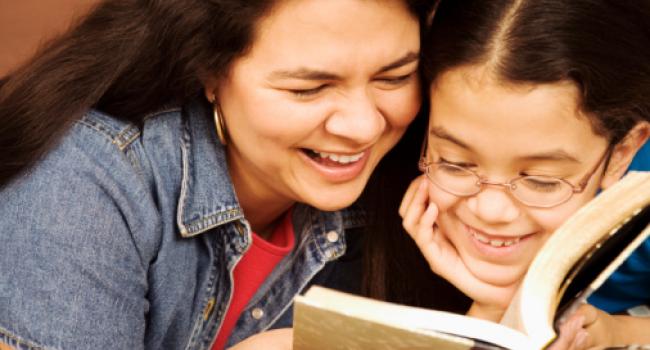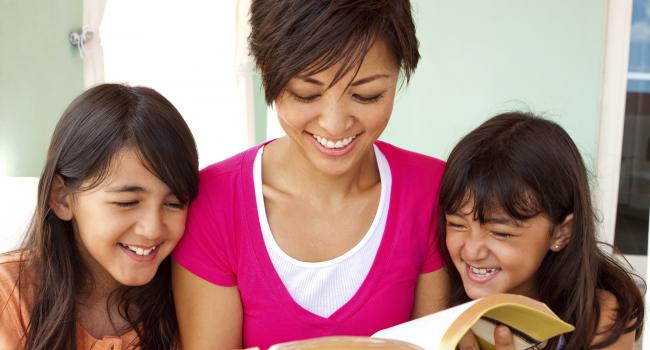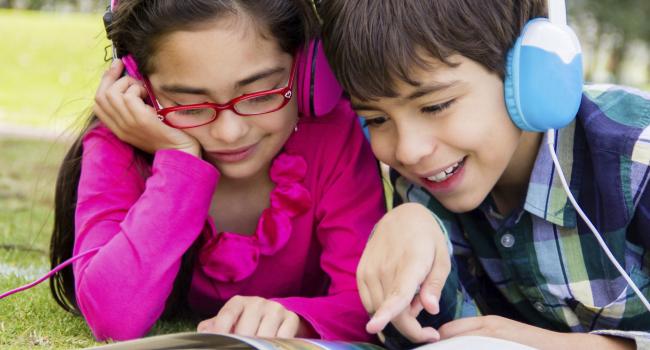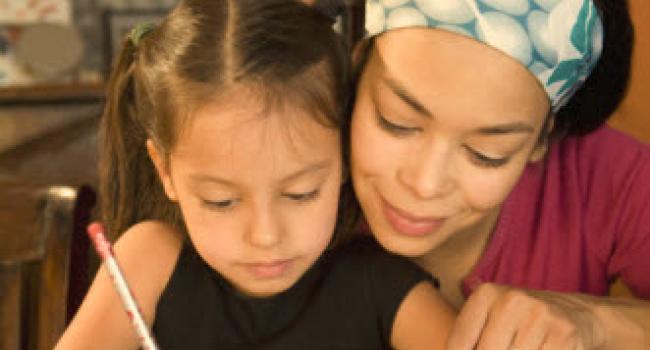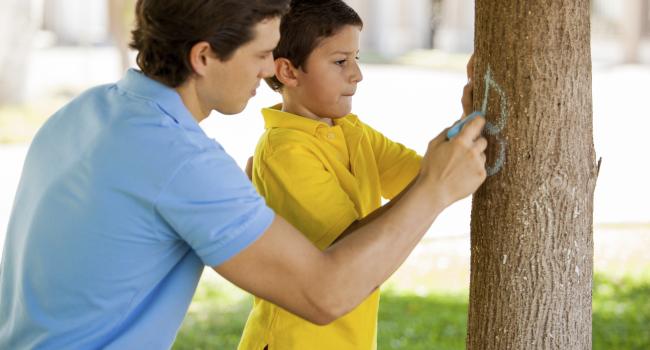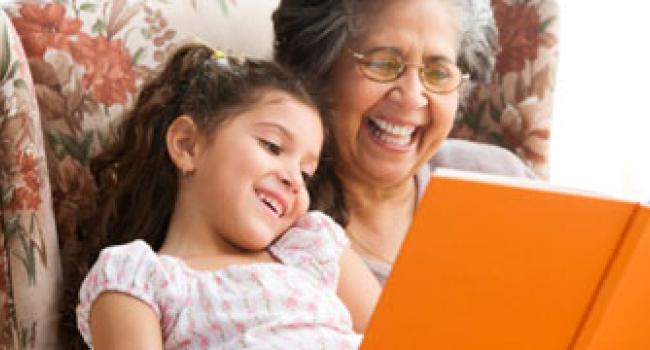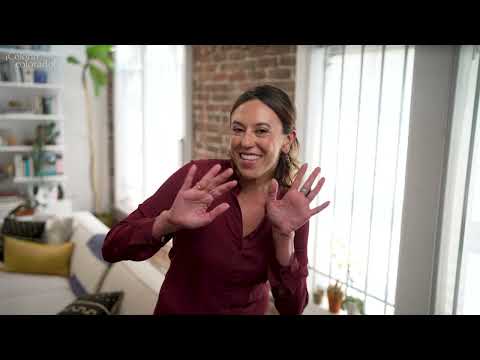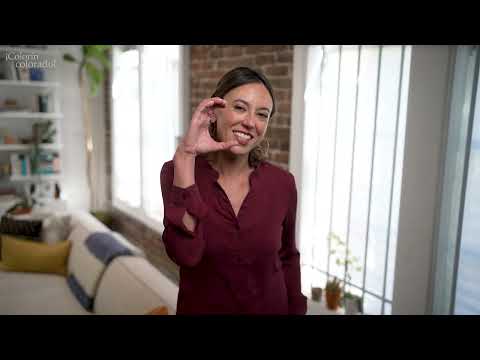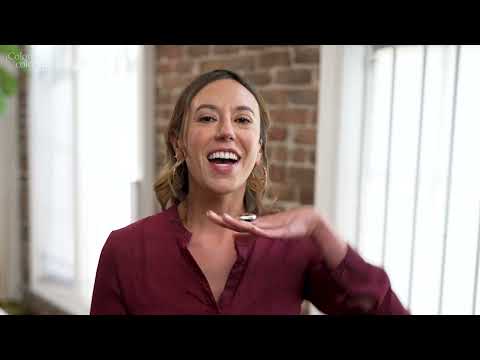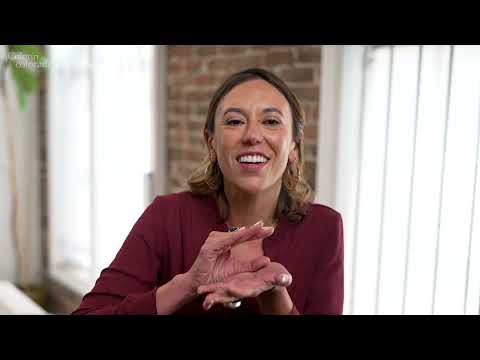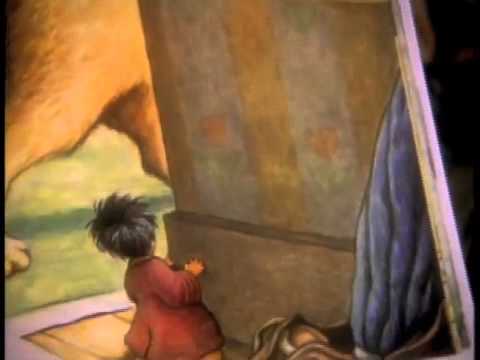Help Your Child Learn to Read

There are lots of ways that you can help your children learn to read! From the time that they are babies to the time that they are in high school, there are many little steps you can take along the way — rhyming and singing songs, reading out loud, sounding out letters, going to the library, and reading books together in your home language. Helping your children learn to read might also mean finding support if they are having difficulty, which can affect their future success. This section is filled with tips for what you can do at home, fun activities, suggestions for choosing books to share together, and ideas on how you can prepare your child for a lifetime and love of reading.
Finding Great Books
For recommendations of books for children and young adults, see our Books & Authors section.
What You'll Find in This Section
It’s never too early to start reading to your child! While reading with a baby or toddler may look different than reading with an older child, there are lots of great activities you can do that will help get them ready to become readers. Take a look at our ideas below and at these books for young children too!
Reading with Babies & Toddlers
There are lots of things you can do at home to help your child get ready to read! Pointing out letters, practicing sounds, singing nursery rhymes, and reading stories together are just a few examples of the activities included in this section.
Getting Ready to Read
As your child begins to read, there are lots of things you can to practice those new skills at home. Re-reading a story, talking about books your read together, and playing word games are just a few examples of the activities included in this section for parents.
Beginning Readers
When your child is reading more independently, there are lots of things you can do to make reading enjoyable. Listening to your child read aloud, going to the library to check out new books or old favorites, and reading books in series are ways to help your child keep growing as a reader.
Independent Readers
Lots of kids love non-fiction books because they are about the world they know and see around them. Books about topics like animals, sports, other countries, volcanoes, bugs, dinosaurs, and famous people may be just the thing to get your child excited about reading! Here are some tips about reading and choosing non-fiction books.
Reading Non-fiction
Reading with your child is one of the best ways to help him or her become a better reader. But you may have some questions — which books should we choose? Which language should I use? Is reading an e-book different? These tips offer ideas and advice to help make the most of your reading time! For a complete list of our reading tips for parents, see Parent Reading Tips by Topic.
Parent Tips: Reading with Your Child
Do you have questions about which language to use when reading with your child? If so, you are not alone — many parents do! See our related articles and FAQs to learn more.
Questions About Language & Reading
There are lots of ways for kids to practice writing at home, whether helping to make a grocery list, writing a story, or typing an e-mail to a friend or relative. These articles describe fun writing activities for kids of all ages.
Writing at Home
Learning to read and write can be very difficult. There are a wide variety of reasons why a child may be having a hard time. These articles provide tips on how to get support and advice if you think your child may need some extra help.
Reading & Writing Difficulties
Written especially for parents, Growing Readers (formerly Ed Extras) provides tips for raising strong readers and writers. Schools and PTAs can add these preformatted briefs to their parent newsletters. Growing Readers is also a great resource for libraries and community literacy organizations. The one- or two-page articles are available as a PDF in both English and Spanish.



